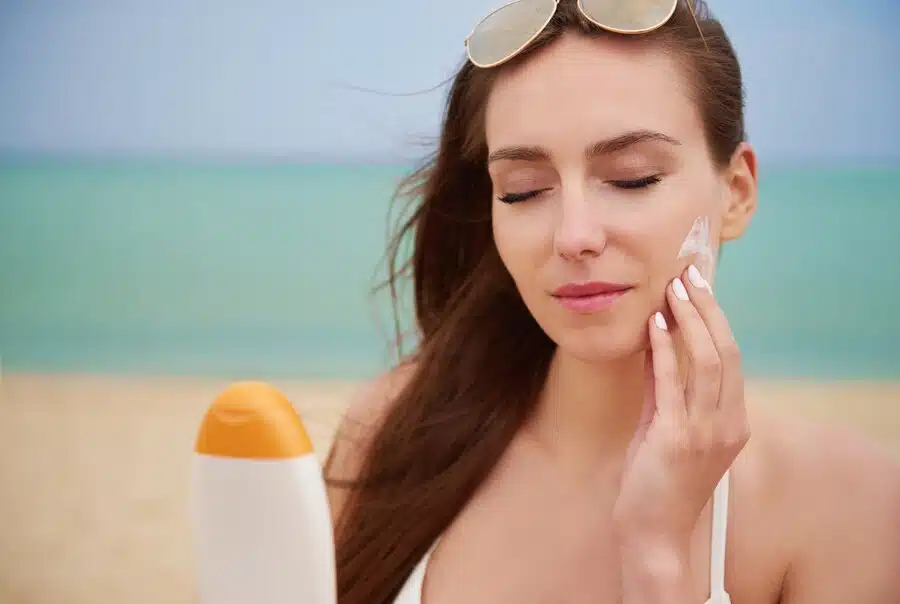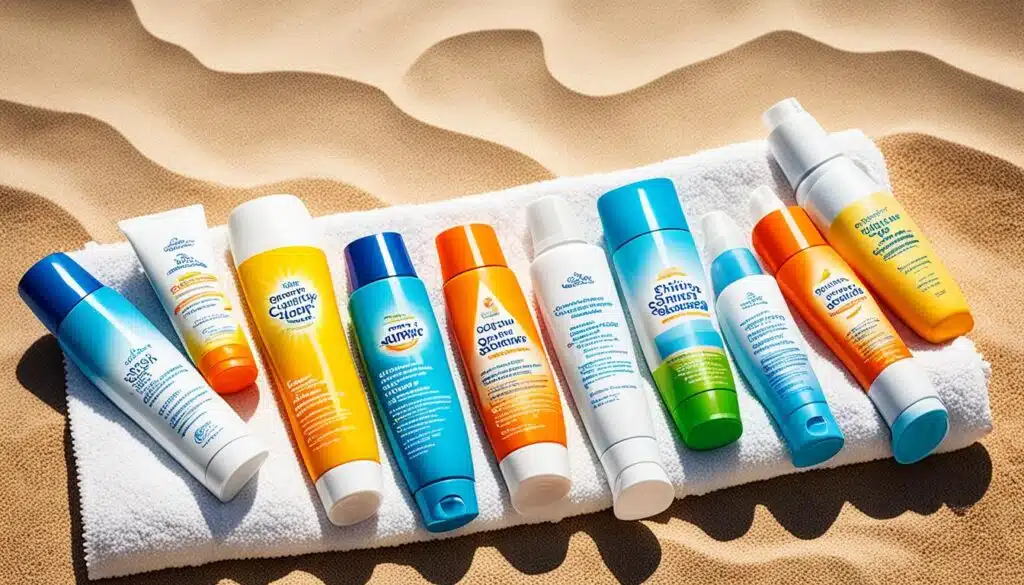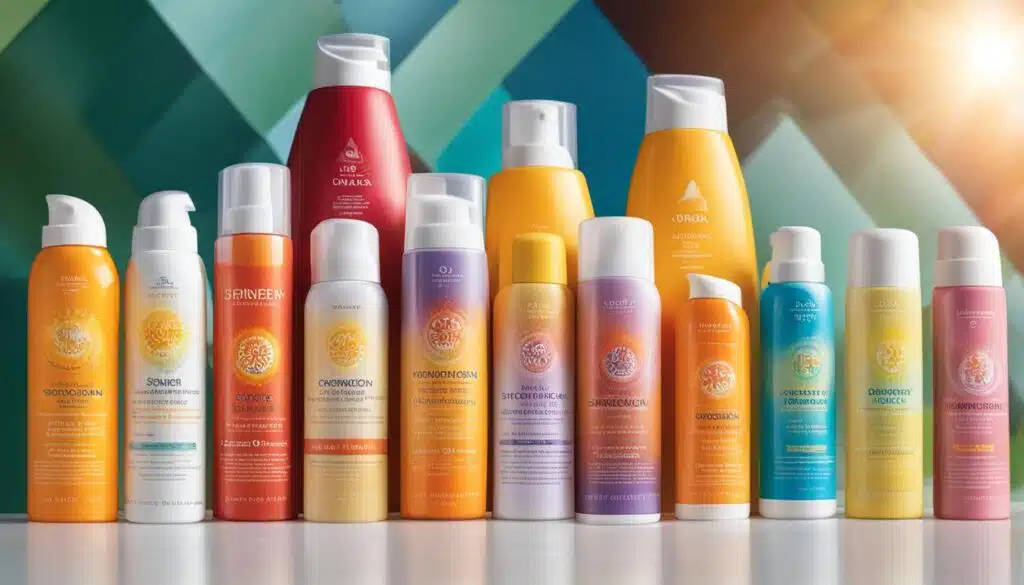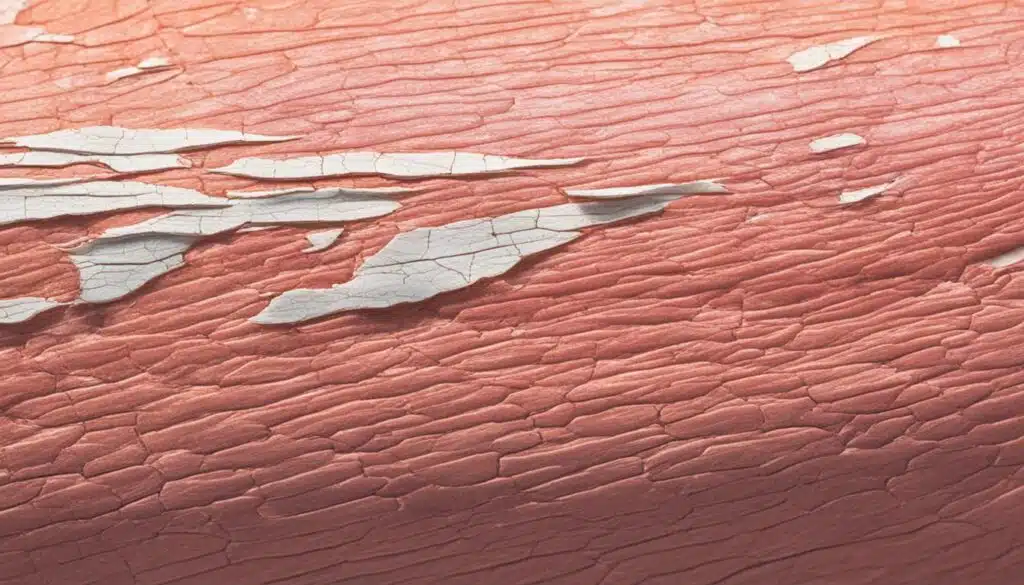Benefits Of Using Sunscreen is vital for protecting your skin from harmful UV rays. Regular use of sunscreen not only helps prevent sunburn but also reduces the risk of skin cancer and premature aging. By incorporating sunscreen into your daily skincare routine, you can safeguard your skin’s health and maintain its youthful appearance.
Key Takeaways: Benefits Of Using Sunscreen
- Sunscreen protects against sunburn, skin cancer, and premature aging.
- Choose a broad-spectrum sunscreen with an SPF of at least 30 for everyday use.
- Apply sunscreen to all exposed areas of the body and reapply every two hours, especially after swimming or sweating.
- Mineral and chemical sunscreens are both effective options, depending on personal preference and skin sensitivity.
- Use sunscreen in conjunction with other sun protection measures for comprehensive sun safety.
Understanding SPF and Sun Protection
When it comes to sun protection, SPF (Sun Protection Factor) plays a crucial role. The SPF number on a sunscreen indicates its ability to protect against UVB rays, which are responsible for sunburn and skin damage. The higher the SPF, the greater the level of sunburn protection. However, it’s important to note that no sunscreen can block all UV rays.
Sunscreens with broad-spectrum protection are designed to defend the skin against both UVA and UVB rays, offering comprehensive sun protection. UVA rays penetrate deeper into the skin and contribute to premature aging, while UVB rays primarily cause sunburn. By using a broad-spectrum sunscreen, you shield your skin from both types of harmful rays, reducing the risk of sunburn, skin cancer, and premature aging.
Simply relying on sunscreen isn’t enough to ensure optimal sun safety. It’s essential to practice additional sun protection measures, such as seeking shade, especially during the peak hours of 10 a.m. to 4 p.m., when the sun’s rays are the strongest. Wearing protective clothing that covers your skin, including hats and sunglasses, can provide an extra layer of defense. Remember to avoid tanning beds and sunlamps, as they also emit harmful UV radiation.
“Sunscreen is a crucial part of a comprehensive sun protection strategy, but it should be complemented by other protective measures to safeguard your skin.”
By combining the use of sunscreen with sun safety practices, you can enjoy the outdoors while minimizing the risk of sunburn and long-term skin damage. Protecting your skin is a commitment to your overall health and well-being.
Choosing the Right Sunscreen
When it comes to protecting your skin from the harmful effects of the sun, choosing the right sunscreen is key. There are several factors to consider, including sunscreen selection, broad-spectrum protection, water resistance, and sunscreen ingredients.
Finding broad-spectrum protection
Opt for a sunscreen that offers broad-spectrum protection, meaning it shields against both UVA and UVB rays. UVA rays can penetrate deep into the skin, leading to premature aging, while UVB rays cause sunburns. By choosing a broad-spectrum sunscreen, you can defend against both types of rays, reducing the risk of sun damage.
Choosing the right SPF
Sun Protection Factor (SPF) is a crucial factor to consider when selecting a sunscreen. For everyday use, look for a sunscreen with an SPF of 30 or higher. If you engage in outdoor activities, consider a higher SPF for added protection. Keep in mind that no sunscreen can provide 100% protection, so it’s important to reapply regularly and practice sun safety measures.
Water resistance for active days
If you’ll be swimming or sweating, choose a water-resistant sunscreen. These formulas are designed to stay effective even when exposed to water, ensuring your skin remains protected throughout your outdoor activities.
Understanding sunscreen ingredients
Sunscreens are available in various forms such as lotions, creams, gels, ointments, wax sticks, and sprays. The active ingredients in sunscreens can be categorized as either physical (mineral) or chemical.
Physical sunscreens contain ingredients such as zinc oxide or titanium dioxide. These ingredients create a barrier on the skin’s surface, blocking and reflecting UV rays.
Chemical sunscreens contain ingredients like avobenzone or octisalate. They work by absorbing UV radiation and converting it into heat.
Both physical and chemical sunscreens are safe and effective, so choose the one that suits your preferences and skin type. It’s important to read the labels and understand the ingredients to make an informed decision.
By considering factors such as sunscreen selection, broad-spectrum protection, water resistance, and sunscreen ingredients, you can make an informed choice and ensure optimal sun protection for your skin.
| Sunscreen Type | SPF | Water Resistance | Main Ingredients |
|---|---|---|---|
| Lotion | 30+ | Yes | Physical or Chemical |
| Cream | 30+ | Yes | Physical or Chemical |
| Gel | 30+ | Yes | Physical or Chemical |
| Ointment | 30+ | Yes | Physical or Chemical |
| Wax Stick | 30+ | Yes | Physical or Chemical |
| Spray | 30+ | Yes | Physical or Chemical |
Proper Application of Sunscreen
Applying sunscreen correctly is crucial for ensuring effective protection against harmful UV rays. Here are some essential tips to follow:
Apply to All Exposed Areas
When applying sunscreen, make sure to cover all exposed areas of the skin that will not be covered by clothing. This includes the face, neck, arms, and legs.
Use Adequate Amount
It is important to use an adequate amount of sunscreen to ensure proper coverage. Experts recommend using at least 1 ounce (enough to fill a shot glass) to cover the entire body.
Apply to Dry Skin
For optimal effectiveness, apply sunscreen to dry skin 15 to 30 minutes before going outdoors. This allows the sunscreen to fully soak into the skin and provide maximum protection.
Reapply Regularly
Sunscreen effectiveness diminishes over time, so it is crucial to reapply it every two hours or more frequently if swimming or sweating. This ensures continuous protection throughout the day.
Don’t Forget Lip Protection
Your lips are also susceptible to sunburn and damage. Remember to apply a lip balm or lipstick with SPF 30 or higher to protect your lips from harmful UV rays.
Even on cloudy days, up to 80 percent of the sun’s UV radiation can reach the earth, so it’s important to use sunscreen daily. By following these proper application techniques, you can confidently shield your skin from the damaging effects of the sun.
Understanding Different Types of Sunscreen
Sunscreens come in two main types: mineral and chemical. These options provide unique benefits and cater to different skin sensitivities.
Mineral Sunscreen
Mineral sunscreens rely on ingredients like zinc oxide or titanium dioxide to physically block and scatter harmful UV rays. This type of sunscreen is an excellent choice for individuals with sensitive skin or those who may react to chemical ingredients. Mineral sunscreens provide a gentle, protective barrier on the skin’s surface, ensuring effective sun protection.
However, one drawback of mineral sunscreens is that they may leave a white cast on the skin, particularly for individuals with darker skin tones. Despite this, mineral sunscreens are a reliable and safe option for maintaining skin health.
Chemical Sunscreen
On the other hand, chemical sunscreens contain ingredients like avobenzone or octisalate that absorb UV radiation. These ingredients work by converting the sun’s harmful rays into heat, which is then released from the skin.
Chemical sunscreens often have lighter textures and blend more seamlessly into the skin compared to mineral sunscreens. They provide effective sun protection while avoiding the potential white cast. Chemical sunscreens are a popular option for individuals who prioritize ease of application and prefer a lightweight feel.
Both mineral and chemical sunscreens offer effective protection against harmful UV rays. The best choice ultimately depends on personal preferences, skin sensitivities, and desired application experience.
It’s important to find a sunscreen that works well for you and ensures consistent usage. Whether you choose a mineral or chemical sunscreen, protecting your skin from the sun’s rays is vital for maintaining skin health and preventing sun damage.
Explore the table below for a quick comparison of mineral and chemical sunscreens:
| Mineral Sunscreen | Chemical Sunscreen |
|---|---|
| Physical barrier | Chemical absorption |
| Safe for sensitive skin | May cause reactions in some individuals |
| May leave a white cast on the skin | Blends seamlessly into the skin |
| Effective protection for all skin tones | Minimal risk of white cast |
When choosing a sunscreen, consider your skin’s needs, individual preferences, and sensitivity. Remember, the best sunscreen is the one you will consistently use to protect your skin from harmful UV rays.
The Importance of Sunscreen Reapplication
Sunscreen is a vital tool in protecting your skin from harmful UV rays. However, simply applying it once in the morning is not enough to ensure continuous protection throughout the day. The effectiveness of sunscreen diminishes over time, making sunscreen reapplication essential to maintain optimal sun protection.
For maximum protection, it is recommended to reapply sunscreen every two hours. This frequency accounts for factors such as sun exposure, sweat, and water activities that can reduce the efficacy of sunscreen. Whether you are lounging by the pool, working outdoors, or simply taking a walk during your lunch break, regular reapplication is key.
Even if you work indoors or spend minimal time near windows, it’s important to consider how often you go outside. Any amount of sun exposure can increase sunburn risk and potential sun damage. Therefore, it is crucial to reapply sunscreen accordingly to ensure continuous protection.
To make it easier to remember, keep a spare bottle of sunscreen at your desk or in your bag. This way, you can reapply whenever necessary without having to worry about running out of sunscreen.
It’s important to note that while sunscreen is an essential part of sun protection, no sunscreen provides perfect protection on its own. Therefore, it is essential to complement sunscreen use with other sun protection measures. This includes wearing wide-brimmed hats and sunglasses to further shield your face and eyes from the sun’s harmful rays. Additionally, seek shade whenever possible to minimize direct sun exposure.
In conclusion, the importance of sunscreen reapplication cannot be overstated. By diligently following a reapplication routine, you can ensure continuous sun protection and reduce the risk of sunburn and potential sun damage.
Sunscreen for Different Skin Types
Sunscreen is suitable for everyone, regardless of their skin type. Choosing the right sunscreen is crucial for effective protection and ensuring comfort. Different skin types have specific needs when it comes to sunscreen.
Sensitive Skin
For those with sensitive skin, it’s important to opt for sunscreens labeled as suitable for sensitive skin or non-comedogenic. These formulations are specially designed to be gentle on sensitive skin and are less likely to cause irritation or breakouts.
Acne-Prone Skin
Acne-prone skin requires extra care when it comes to sunscreen selection. Look for sunscreens that are non-comedogenic, which means they won’t clog pores and exacerbate acne. These sunscreens are formulated to be lightweight and won’t aggravate acne breakouts.
Dry Skin
If you have dry skin, choose a sunscreen that also offers moisturizing properties. Moisturizing sunscreens provide hydration and prevent dryness, ensuring your skin stays nourished and protected from the sun’s harmful rays.
Oily Skin
People with oily skin may prefer lightweight, oil-free sunscreens that won’t leave a greasy residue. These formulations are specifically designed to control excess oil and provide effective sun protection without making the skin feel heavy or greasy.
It’s important to find a sunscreen that works well with your specific skin type to ensure comfortable and effective protection. By choosing a sunscreen that caters to your skin’s needs, you can ensure that your sunscreen application is a seamless part of your daily routine.
Comparison Table: Sunscreen for Different Skin Types
| Skin Type | Recommended Sunscreen Characteristics |
|---|---|
| Sensitive Skin | Non-comedogenic, suitable for sensitive skin |
| Acne-Prone Skin | Non-comedogenic, lightweight |
| Dry Skin | Moisturizing, hydrating |
| Oily Skin | Oil-free, lightweight |
Choose a sunscreen that suits your skin type to ensure both protection from the sun’s harmful rays and optimal skin health.
Sunscreen and Skin Health
Regular use of sunscreen is crucial for maintaining the health and appearance of your skin. Studies have shown that daily use of SPF 15 sunscreen can reduce the risk of squamous cell carcinoma (SCC) by about 40 percent and lower the risk of melanoma by 50 percent. Sunscreen also helps prevent premature aging caused by sun damage, including wrinkles, sagging, and age spots.
Sunscreen plays a vital role in preserving your skin’s health and maintaining a youthful complexion by protecting your skin from harmful UV rays.
Also Read: Proactive Skin Care: Achieve Healthier Skin Now
Conclusion
Sunscreen is more than just a summertime essential; it is a vital component of your overall sun protection strategy. By incorporating sunscreen into your daily routine, you can reap the benefits it offers in safeguarding your skin from the harmful effects of the sun.
Using sunscreen diligently helps protect your skin from sunburn, reduces the risk of skin cancer, and prevents premature aging. By selecting the right sunscreen with broad-spectrum protection, applying it correctly to all exposed areas of your skin, and reapplying as needed, you can significantly reduce the risk of sun damage.
Remember that sunscreen should be complemented with other sun protection measures such as seeking shade, wearing protective clothing, and avoiding tanning beds or sunlamps. By making sunscreen a daily habit, you prioritize the health and well-being of your skin. Take care of your skin today, and enjoy the benefits of using sunscreen for a lifetime.
FAQs
Q: Why is it important to wear sunscreen every day?
A: Wearing sunscreen every day helps protect your skin from harmful UV rays, reducing the risk of skin cancer, premature aging, and skin damage.
Q: What are the benefits of using sunscreen daily?
A: Daily sunscreen use can prevent sunburn, premature aging, and skin damage, while also maintaining a healthy and youthful skin appearance.
Q: How does sunscreen protect your skin from UV exposure?
A: Sunscreen acts as a barrier that absorbs or reflects UV rays, shielding the skin from harmful effects such as skin cancer and premature aging.
Q: What is the importance of wearing sunscreen regularly?
A: Regular sunscreen use is crucial in preventing various types of skin cancer, protecting skin cells, and maintaining overall skin health.
Q: Should I wear sunscreen even on cloudy days?
A: Yes, it is recommended to wear sunscreen every day, regardless of the weather, as UV rays can still penetrate through clouds and cause skin damage.
Q: How can wearing sunscreen protect your skin from premature aging?
A: Using sunscreen daily can help prevent signs of aging such as fine lines, wrinkles, and sagging skin, keeping your skin looking youthful for longer.
Q: What SPF should I look for in a sunscreen?
A: It is recommended to choose a sunscreen with SPF of 15 or higher, with SPF 30 or 50 being ideal for adequate protection against UV rays.











